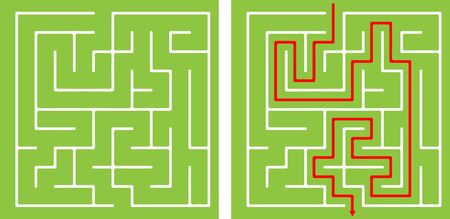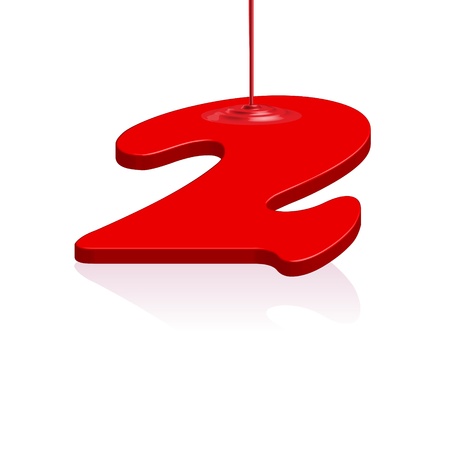1. Introduction to Kua Numbers and Their Relevance
Kua numbers are a core concept in Feng Shui, an ancient Chinese system that focuses on creating harmony in living spaces. The Kua number, sometimes called the “Eight Mansions number,” is based on your birth year and gender. It helps determine which directions and areas of your home or workspace are most supportive for you personally. While Kua numbers have deep roots in Eastern traditions, they can be highly relevant for those living in Western countries like the United States, where people are increasingly interested in ways to improve their well-being, productivity, and sense of comfort at home.
Overview of the Kua Number System
The Kua number system originated from ancient Chinese beliefs about how energy (Qi) flows through our surroundings. By understanding your personal Kua number, you can align yourself with positive energies that promote health, success, and relationships. This is not just about superstition—it’s also about being mindful of your environment and making thoughtful choices about where you spend time.
Why Kua Numbers Matter in a Western Lifestyle
In today’s fast-paced Western lifestyle, many people seek practical tools to create balance and reduce stress at home or work. The Kua number offers a simple way to personalize your living or working space—something that resonates with the American value of individual expression and self-improvement. Whether you’re arranging your desk for better focus or choosing a bedroom location for restful sleep, knowing your Kua number can add another layer of intention to everyday decisions.
Key Points About Kua Numbers
| Aspect | Description |
|---|---|
| Origin | Ancient Chinese Feng Shui tradition |
| Main Purpose | Identify personal lucky/unlucky directions |
| How Its Used | Guides furniture placement, room selection, workspaces |
| Modern Appeal | Helps customize environments for well-being and success |
| Relevance in the West | Aligns with interest in wellness and personalized living spaces |
What You’ll Learn Next
This guide will walk you through how to calculate your own Kua number and show you how to use it in ways that fit naturally into an American lifestyle—whether you live in a house, apartment, or even a college dorm. Understanding your Kua number is the first step toward making your environment truly work for you.
2. How to Calculate Your Personal Kua Number
Calculating your Kua number is a simple way to discover which directions bring you the most luck, harmony, and good energy in your home or office. It’s a unique number based on your birth year and gender. Follow these step-by-step instructions to find your Kua number, using examples and tips familiar to those living in the U.S.
Step 1: Write Down Your Birth Year
Your birth year should be based on the Gregorian calendar (the one commonly used in the United States). If you were born in January or early February, double-check the Chinese New Year date for your birth year—sometimes your “Kua” year will be the previous year.
Example:
If you were born on March 15, 1990, use 1990. If you were born on January 25, 1990 (before Chinese New Year that year), use 1989 instead.
Step 2: Add the Last Two Digits of Your Birth Year
Add together the last two digits of your birth year until you get a single digit.
| Birth Year | Add Last Two Digits | Reduce to Single Digit |
|---|---|---|
| 1995 | 9 + 5 = 14 | 1 + 4 = 5 |
| 1987 | 8 + 7 = 15 | 1 + 5 = 6 |
| 1973 | 7 + 3 = 10 | 1 + 0 = 1 |
Step 3: Adjust Based on Gender
This is where things differ for males and females:
- Males: Subtract your single digit from 10 (if born before 2000) or from 9 (if born in or after 2000).
- Females: Add 5 to your single digit (if born before 2000) or add 6 (if born in or after 2000). If your result is a double-digit number, add those digits together to get a single digit.
Example Calculations for U.S. Audiences:
| Name & Gender | Birth Year | Single Digit from Step 2 | Kua Number Calculation |
|---|---|---|---|
| Mike (Male) | 1995 | 5 | 10 – 5 = 5 |
| Susan (Female) | 1995 | 5 | 5 + 5 = 10 → 1 + 0 = 1 |
| Ashley (Female) | 2002 | 2 + 0 = 2 | 2 + 6 = 8 |
| Bryan (Male) | 2003 | 0 + 3 = 3 | 9 – 3 = 6 |
Kua Numbers That Are Not Used:
The number ‘5’ is not assigned as a personal Kua number. Instead, if you get a result of ‘5’:
- Males use ‘2’ as their Kua number.
- Females use ‘8’ as their Kua number.
A Quick Reference Table for Calculating Your Kua Number:
| Your Gender & Birth Year Range | Kua Number Formula |
|---|---|
| Males, Born Before 2000 | Kua = 10 – (last two digits, reduced to one digit) |
| Males, Born in/after 2000 | Kua = 9 – (last two digits, reduced to one digit) |
| Females, Born Before 2000 | Kua = (last two digits, reduced) + 5 (if >9, add digits again) |
| Females, Born in/after 2000 | Kua = (last two digits, reduced) + 6 (if >9, add digits again) |
| If Result Is ‘5’ (Male/Female) | Males use ‘2’, Females use ‘8’ instead of ‘5’ |
Troubleshooting Tips for Western Readers:
- If you’re unsure about your “Chinese” birth year due to an early birthday, check an online Chinese New Year date calculator.
- This method works no matter where you were born—just use your actual birth year according to the standard American calendar unless otherwise noted above.
- Your Kua number never changes throughout life—it’s like an energetic fingerprint!

3. Interpreting Your Kua Number in Everyday Life
Understanding What Your Kua Number Means
Your Kua number is more than just a lucky digit—it gives you insights into your natural strengths, personality traits, and the directions that best support your success and well-being. In the Western context, you can think of it a bit like knowing your zodiac sign or personality type, but with a focus on how your environment influences your life.
Personality Traits by Kua Number
| Kua Number | Key Personality Traits |
|---|---|
| 1 | Adaptable, creative, intuitive, prefers calm environments |
| 2 | Dependable, nurturing, organized, values stability |
| 3 | Energetic, ambitious, outgoing, enjoys new challenges |
| 4 | Flexible, curious, communicative, likes variety |
| 6 | Disciplined, responsible, strong leadership qualities |
| 7 | Confident, sociable, enjoys comfort and luxury |
| 8 | Practical, determined, values security and achievement |
| 9 | Charismatic, passionate, artistic and visionary |
Your Best Directions and How to Use Them at Home or Work
Each Kua number has four favorable (lucky) directions that enhance different aspects of life: Success (Sheng Chi), Health (Tien Yi), Relationships (Nien Yen), and Personal Growth (Fu Wei). Knowing these directions can help you decide how to arrange your home office desk or bed for maximum benefit—even if you live in a New York apartment or a California ranch house.
| Kua Number Group | Main Lucky Directions* | Best Use Cases in American Context |
|---|---|---|
| Kua 1, 3, 4, 9 (East Group) |
North, South, East, Southeast | – Face East when working from home – Place your bed headboard toward South – Arrange living room seating facing North for good conversations |
| Kua 2, 6, 7, 8 (West Group) |
West, Northwest, Southwest, Northeast | – Face West during important Zoom calls – Place dining table facing Northwest for family harmony – Set up reading nook toward Southwest for relaxation |
*Your specific best direction depends on your individual Kua number—use a Kua chart for details.
Easy Ways to Apply This Insight in Daily Life:
- Work-from-home setup: Position your desk so you face one of your lucky directions during work hours. It’s believed to boost productivity and bring opportunities.
- Bedroom arrangement: Try sleeping with the head of your bed pointing toward a beneficial direction. Many Americans find this helps with restful sleep and positive energy.
- Lifestyle activities: When having important conversations or making big decisions at home (like helping kids with homework), face one of your personal good directions.
A Modern Take on Feng Shui in the US:
You don’t need major renovations to benefit from your Kua number. Small adjustments—like turning your favorite chair or reorienting your workspace—can make a difference. Even in rented apartments or shared spaces common in American cities, using portable items (like plants or lamps) to mark lucky directions works just fine.
4. Incorporating Kua Principles into Western Home Design
Aligning Your Space with Your Kua Number
Once you know your personal Kua number, you can start making changes in your home to support your goals and well-being. The great thing is that you don’t need to redesign everything or lose your American style—just small, thoughtful adjustments can bring harmony and good energy. Here’s how to use Kua principles in a way that fits modern Western homes.
Understanding Your Best Directions
Your Kua number gives you four lucky directions (for things like health, relationships, and prosperity) and four less-auspicious ones. Here’s a quick guide:
| Kua Number | Best Direction | Example Purpose |
|---|---|---|
| 1 | Southeast | Wealth & Success |
| 2 | Southwest | Relationships & Stability |
| 3 | East | Growth & Health |
| 4 | North | Personal Development |
| 6 | Northwest | Leadership & Support |
| 7 | West | Creativity & Joy |
| 8 | Northeast | Knowledge & Wisdom |
| 9 | South | Fame & Recognition |
Practical Tips for Applying Kua in American Homes
Selecting the Right Room Functions for Each Direction
Lucky Directions:
If your best direction is East, try placing your home office or study area on the east side of your house. If Southwest is lucky for you, consider putting your bedroom or family room there to encourage strong relationships.
Avoiding Unlucky Directions:
If a certain direction isn’t favorable for you (based on your Kua), avoid spending long hours there or placing important activities in those spaces. For example, if North is not ideal, use it for storage or less-used rooms like the laundry.
Beds and Desks: Placement Tips with an American Touch
- Beds: Try positioning your headboard so you sleep facing your best direction. If it’s not possible because of windows or doors, add comforting décor like soft pillows or artwork in that direction.
- Desks: Place your desk so when you’re working or studying, you’re looking toward your lucky direction. This works even in an open-plan living area common in many U.S. homes.
Sofas and Seating Areas: Creating Welcoming Spaces
- Sofa Placement: Arrange main seating so guests face one of your positive directions. This invites good energy during gatherings—a key part of American hospitality.
Décor Elements: Blending Feng Shui with American Style
- Add plants, family photos, or art in the areas that align with your best directions—these personal touches are both meaningful and culturally familiar.
- You don’t have to use traditional Asian symbols unless they fit your taste; Americana décor, modern farmhouse style, or contemporary pieces all work as long as they feel right to you.
An Example Layout: Bringing It All Together
| Kua Number 6 Example (Northwest is Best) | |
|---|---|
| Main Bedroom in Northwest corner Bed faces Northwest Home office desk angled toward Northwest Family gallery wall on Northwest wall Dining table seats oriented toward Northwest |
A Note on Flexibility and Comfort
Your home should always feel comfortable for you and your family. Don’t stress if every detail isn’t perfectly aligned with feng shui rules—the goal is balance and positive feelings. Small changes based on your Kua number can help support happiness and success while keeping the welcoming look of an American home.
5. Common Myths and FAQs About Kua Numbers in the West
Addressing Misconceptions About Kua Numbers
Kua numbers are a fascinating part of Feng Shui, but when introduced to Western audiences, misunderstandings can happen. Let’s clear up some common myths and questions to help Americans get comfortable using Kua numbers in their daily lives.
Myth vs. Fact Table
| Myth | Fact |
|---|---|
| Kua numbers are only for Chinese people. | Anyone, regardless of cultural background, can use Kua numbers to improve harmony and energy flow at home or work. |
| You need to believe in Feng Shui for it to work. | Kua numbers offer practical guidelines for space arrangement that anyone can try, regardless of spiritual beliefs. |
| Kua numbers are the same as astrology signs. | Kua numbers are based on birth year and gender, not planetary positions or zodiac signs. They serve a different purpose than astrology. |
| Your Kua number never changes. | Your personal Kua number stays the same throughout your life, but different spaces and people may have other Kua influences. |
| You need special tools to find your Kua number. | You just need your birth year and gender—no special tools required! |
Frequently Asked Questions (FAQs)
How do I use my Kua number in an American home?
Start by identifying your lucky directions based on your Kua number (like Health, Wealth, Love). Arrange important furniture—such as your bed or work desk—so you face these directions. If you live in an apartment or small space, even turning your chair or bed slightly can make a difference.
Is it okay to mix Feng Shui with my own cultural traditions?
Absolutely! Many Americans blend Feng Shui principles with their personal style. You don’t have to change your décor; simply use the information from your Kua number to tweak orientation or placement where possible.
I share my home with family members who have different Kua numbers. What should I do?
This is common! Try finding shared “good” directions that overlap between family members for communal spaces like the living room. For private spaces like bedrooms or home offices, personalize according to each person’s Kua number if possible.
Can I use my Kua number at work?
Yes! Even in an office cubicle or open workspace, you can face your best direction when sitting at your desk or during meetings. Small adjustments can help boost comfort and focus.
Guidance for Americans Exploring Kua Numbers
- Stay open-minded: Think of Feng Shui as a set of helpful tips rather than strict rules.
- Adapt what works: Use what feels right for you and fits within your lifestyle—there’s no need to overhaul everything at once.
- Combine with familiar practices: It’s perfectly fine to mix Western design ideas with Feng Shui suggestions based on your Kua number.
- Ask questions: Reach out to Feng Shui practitioners or join online communities if you’re curious about applying these concepts further in American contexts.
Exploring your personal Kua number can be a fun way to enhance comfort and positivity at home and work—even when adapted for modern American life!


